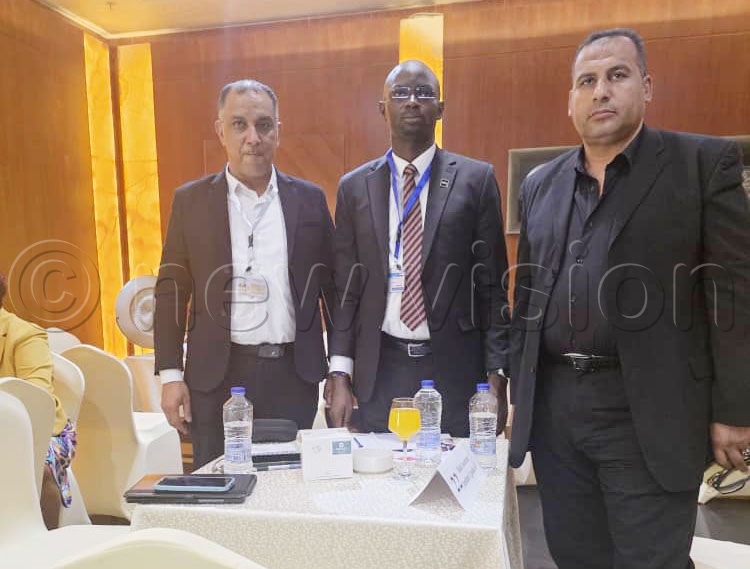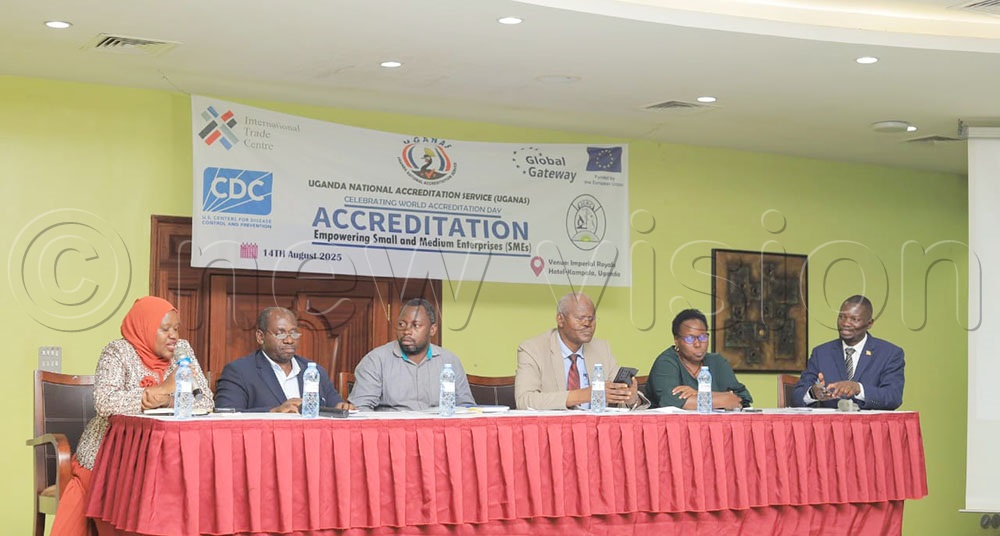Ugandan exporters eyeing $2 trillion Halal global market
Kalema explained that HAIU was working in partnership with SGS Gulf Limited, one of the region’s most respected inspection and certification firms, to inspect and accredit goods in Uganda before they are exported to Halal markets worldwide.
The Government projects that Halal-certified beef exports to the Middle East could reach sh4.1trillion (approx.$1.09b) by 2030, while agriculture value chain exports could more than double to sh13.3trillion (approx.$3.5b). (Credit: Eddie Ssejjoba)
By Eddie Ssejjoba
Journalists @New Vision
KAMPALA - Ugandan exporters left the World Accreditation Day celebrations with a smile after it was revealed that they would benefit from a breakthrough in accessing the global Halal market, estimated at $2 trillion.
The breakthrough was announced by Ali Kalema, the executive director of the Halal Assurance Institute Uganda (HAIU), during celebrations to mark the World Accreditation Day on Thursday, 14, 2025, at Imperial Royale Hotel in Kampala.
The day was organised by the Uganda National Accreditation Service (UGANAS), under the Ministry of Trade, Industry and Cooperatives and opened by the state minister for industry, David Bahati.
Kalema declared that exporters with Halal-compliant products can now access accreditation in Uganda, saying that lacking the same had been a big hindrance to trade, especially with Muslim states.
Kalema (C) declared that exporters with Halal-compliant products can now access accreditation in Uganda, saying that lacking the same had been a big hindrance to trade, especially with Muslim states. (Credit: Eddie Ssejjoba)
He explained that HAIU was working in partnership with SGS Gulf Limited, one of the region’s most respected inspection and certification firms, to inspect and accredit goods in Uganda before they are exported to Halal markets worldwide.
The partnership, he explained, guarantees that Ugandan goods will be accepted by Gulf authorities with minimal scrutiny.
Gulf countries include Saudi Arabia, the United Arab Emirates, Qatar, Kuwait, Bahrain, Oman, and Yemen, where Halal compliance is a requirement for goods like food, beverages, cosmetics, and pharmaceuticals.
“As long as we meet the standards at the source here at home, there is nothing that will stop our products from accessing global markets and competing favorably,” Kalema said, adding that HAIU’s task was to raise awareness among producers and exporters, which he said would place Uganda as a trusted source of Halal-compliant products.
“You cannot access certain markets in the Gulf region without the Halal assurance certification, but now that Ugandan producers can secure this certification at home without the delays and costs of going abroad, we expect improved trade volumes originating from here,” Kalema explained.
He added that indeed Halal compliance was an automatic passport to the global Muslim market, built on trust, safety, and quality.

According to Kalema, the Halal certification process involves detailed audits at farm, factory, and other processing plants to ensure that production from raw material sourcing to final packaging meets both Islamic law and international food safety standards.
One of the setbacks exporters faced in targeting the Halal market has been the big costs they have been incurring in meeting the procedures that included sending paperwork and product samples to certification bodies abroad, which also slowed down business and put Ugandan goods at a disadvantage.
In May this year, Kalema led the HAIU management team to Saudi Arabia, where they met with the Uganda Embassy officials and the Gulf Cooperation Council Accreditation Centre to align Uganda’s certification procedures with Gulf standards.
The harmonisation is expected to smooth export approvals and build confidence among foreign buyers.
The Government projects that Halal-certified beef exports to the Middle East could reach sh4.1trillion (approx.$1.09b) by 2030, while agriculture value chain exports could more than double to sh13.3trillion (approx.$3.5b).
